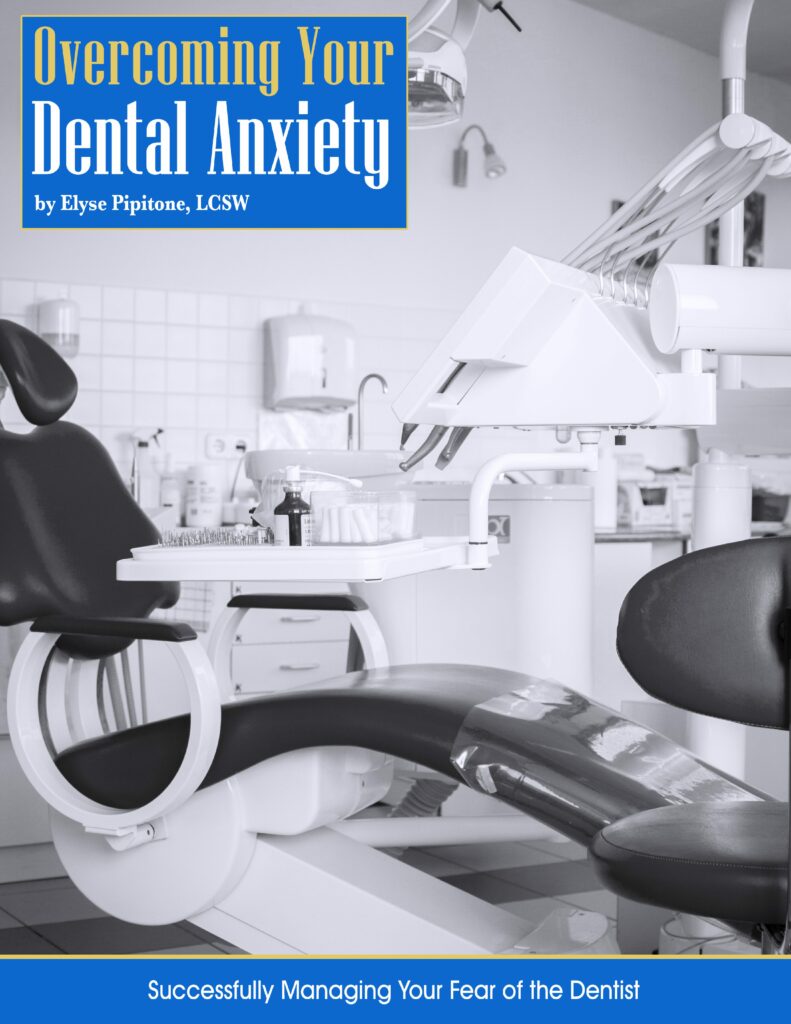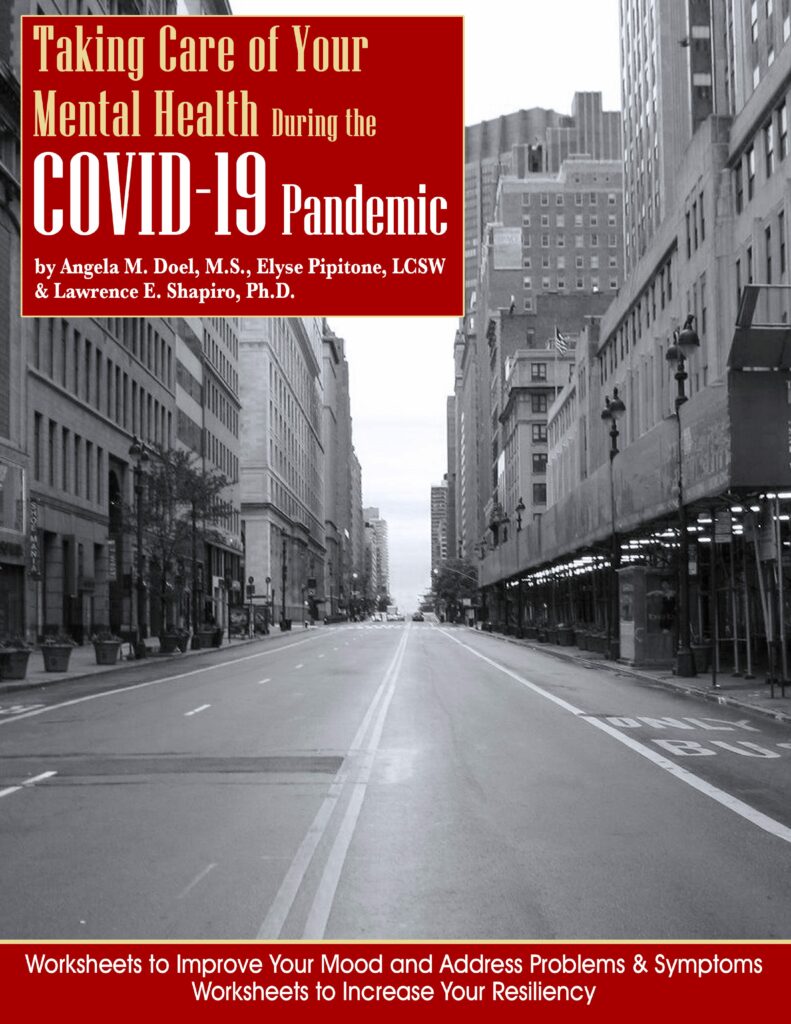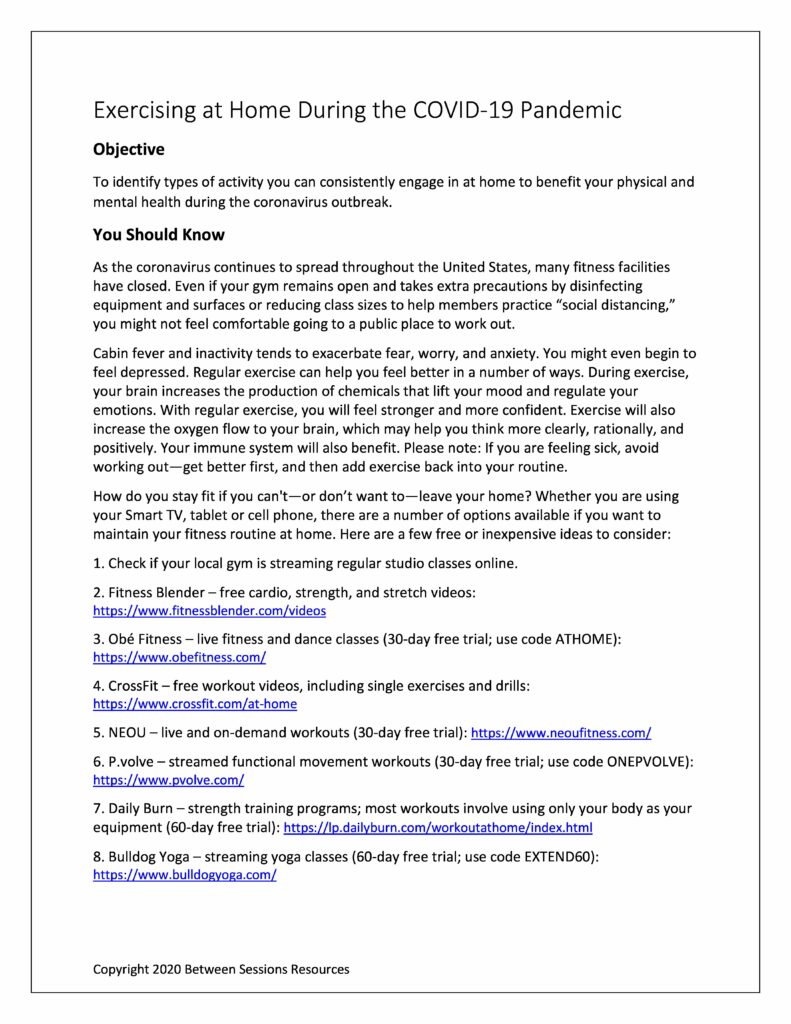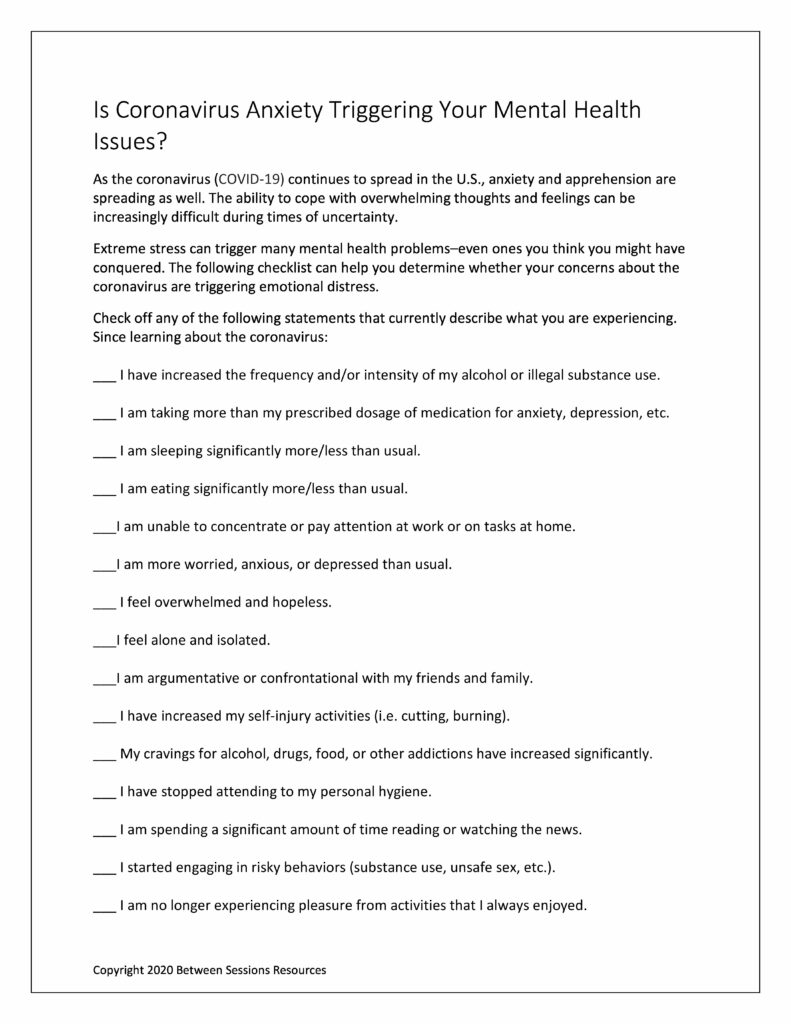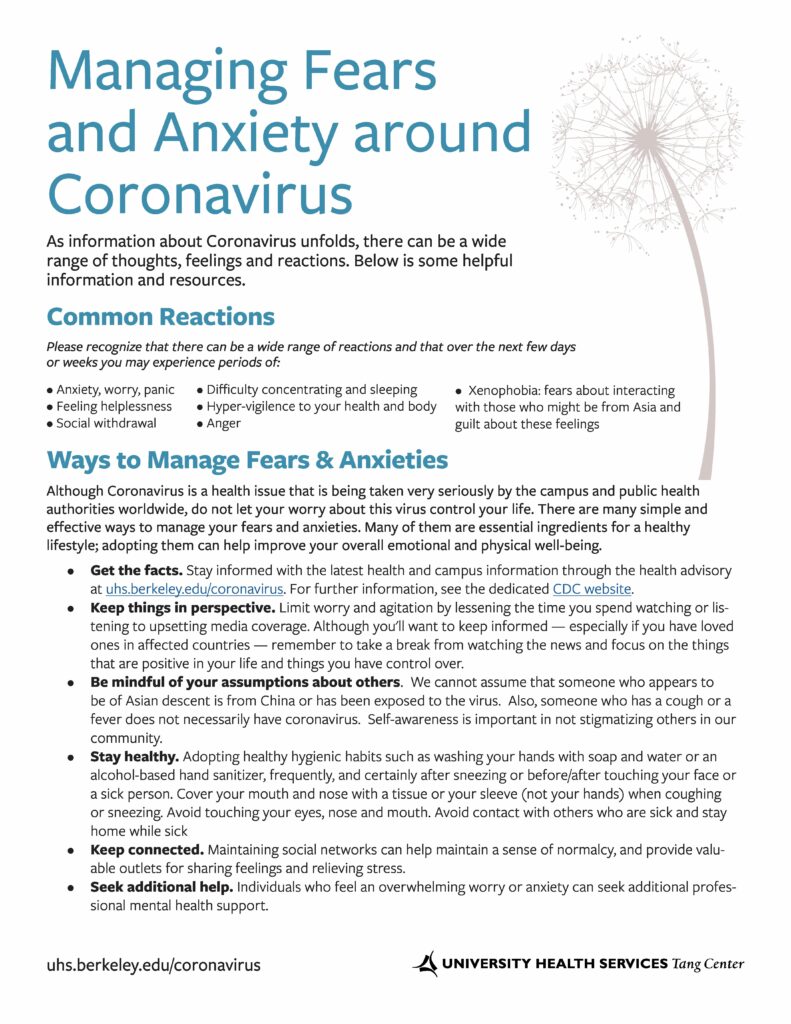This workbook provides a complete program for help people overcome dental anxiety. There are four sections, including: Understanding Your Options as a Patient; Building a Relationship with Your Dentist; Using Coping Skills to Manage Your Dental Anxiety; and Taking Control at the Dentist. The Appendix has a special worksheet on dealing with dental anxiety during the COVID-19 Pandemic.
This one-of-a-kind workbook features 22 worksheets specifically designed to address problems associated with the COVID-19 pandemic and 22 worksheets designed to foster resiliency skills which can last a lifetime.
This worksheet is designed to help people control their anxiety during the pandemic by limiting their exposure to news and social media as well as negative and over-looking anxious people. It encourages people to stay in close contact with positive and supportive people. (0320, coronavirus, pandemic)
This worksheet gives people ways to exercise at home during the coronavirus pandemic. It suggests different apps and online tools people can try and asks them to track their exercise habits. (depression, anxiety, exercise, coronavirus, pandemic, COVID-19, 0320)
This worksheet is intended to help people determine if anxiety about the coronavirus is triggering other mental health problems. (generalized anxiety disorder, COVID-19, pandemic, coronavirus, fear, 0320)
This fact sheet was prepared by the Univ of California at Berkeley to help people understand how to handle anxiety and fears regarding the coronavirus. (health anxiety, 0320)
This worksheet is designed to help people who have a fear of going to the dentist find a partner to help them get to appointments and give them needed support. (1219, dental phobia)
It’s very difficult to talk to loved ones about the end of your life, but it is also one of the most important conversations you can have. This Conversation Kit is from The Conversation Project, dedicated to helping people talk about their wishes for end-of-life care. (012917)
This Advanced Directive is designed to be used with people who have some form of dementia. It asks the person to think about what medical and lifestyle care he/she would want at mild, moderate, and severe stages. (0118)
For many people who have cancer, keeping an anxiety diary is a good solution to deal with the inevitable
worries that accompany this diagnosis. This worksheet prompts people to write down their worries whenever they have them. (medical issues, cancer, 1117)

